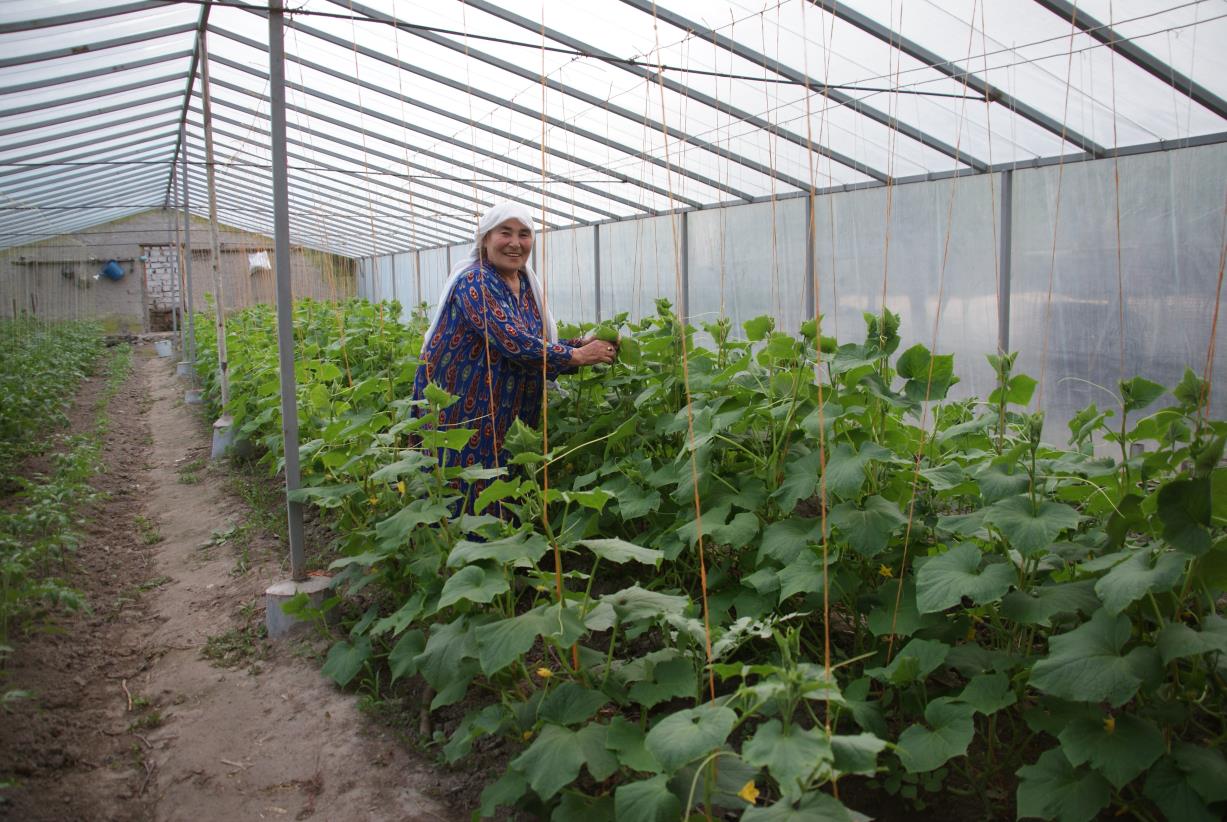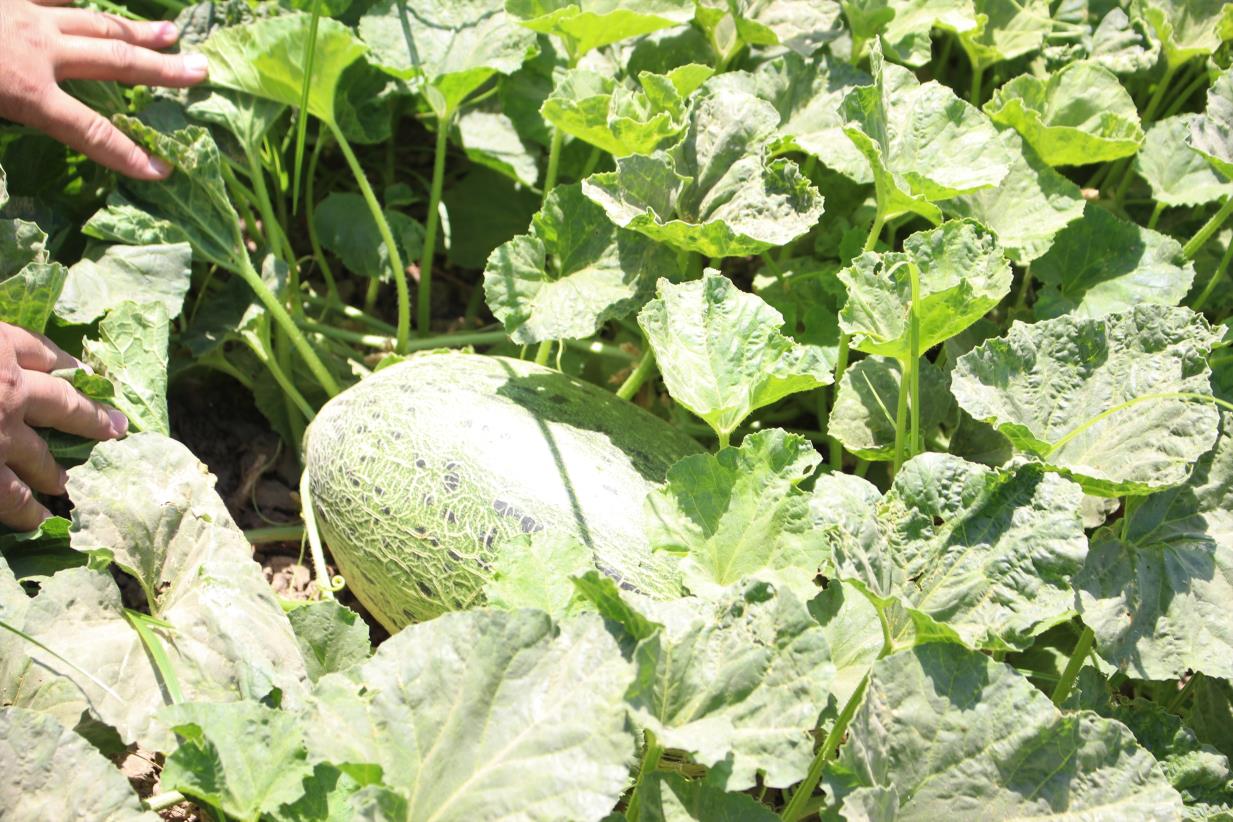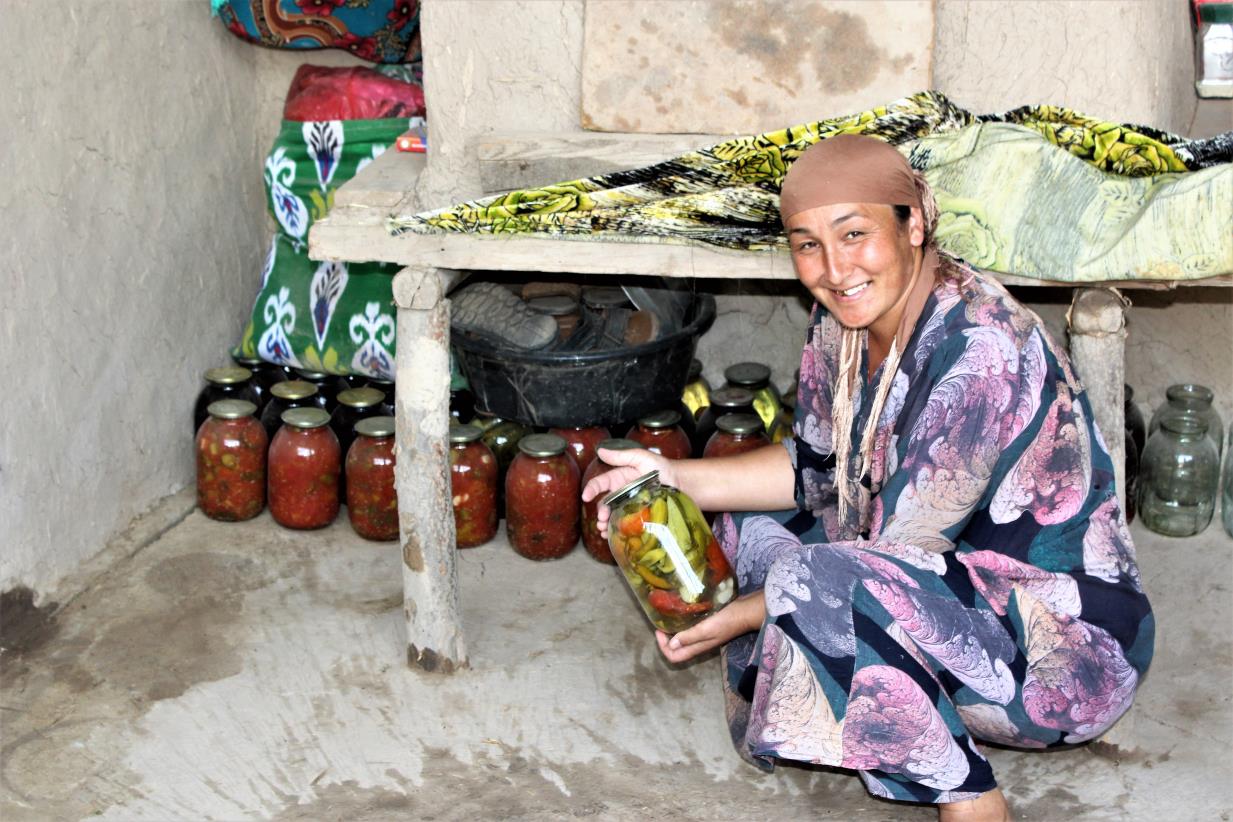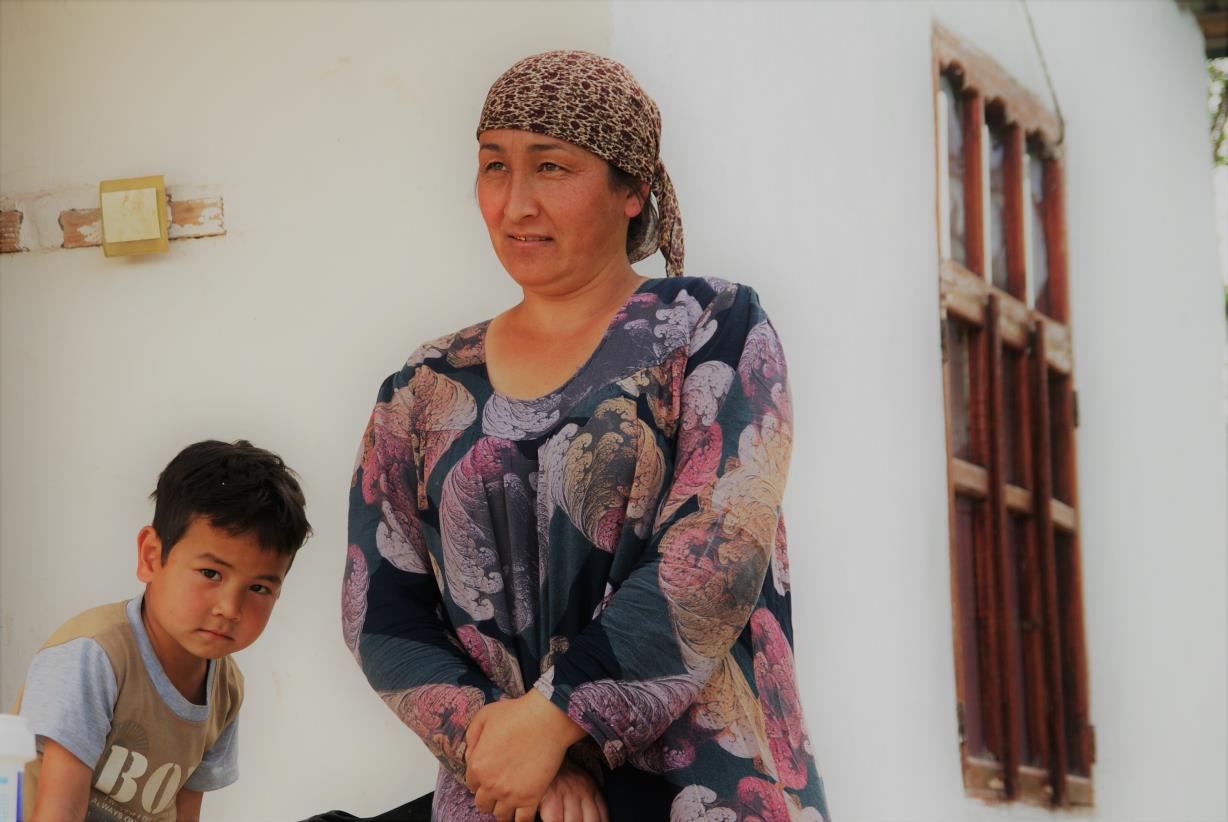
Empowering women to help achieve global goal of #ZeroHunger
©FAO/Magdalena Gajdzinska
11/10/2019
Women are key actors and caretakers of household food security, particularly in rural areas of Tajikistan. They are largely responsible for preparing meals, carrying drinking water, rationing food and caring for their children’s health. At the same time, they produce food, manage natural resources and make income to support their families.
For widows, this burden is even greater.
Safargul Bobogeldiyeva lives in the southern part of Tajikistan, in the Yovon district of the Khatlon region. She has two children, and her husband died several years ago. She owns a kitchen garden plot – 0.02 ha in size – on which she grows vegetables, and she also has some young fruit trees.
Crop production – often a woman’s domain in southern Tajikistan – is plagued by yield losses due to an ongoing drought and lack of irrigation water. Trying to grow vegetables to feed her family, Safargul has been faced with the challenges of high temperatures and a scarcity of irrigation water.
As evidence of these harsh conditions, thousands of families have suffered this past year in the Khatlon region.
“Among other problems, my kitchen garden plot did not have a fence, and animals very often destroyed it easily,” Safargul said. “As well, the lack of water for irrigation meant crop and food shortages, no food diversification, more frequent illnesses and malnutrition. especially among children, and so on.”
Like many other women in her community, Safargul used to struggle through the dry season. She worked in her kitchen garden during the rainy season, but she did not do anything during the dry season.


©FAO/Magdalena Gajdzinska
How can reliable irrigation water contribute to the food security of rural people?
Among many agricultural technologies, drip irrigation has proved that it can replace time-consuming tasks of manual irrigation while increasing yield, enhancing the use efficiency of fertilizers and significantly saving irrigation water. When targeted at women-headed households, family farm drip irrigation has been found to increase women’s productivity and income and to enhance their welfare by reducing drudgery, decreasing workload, improving health and saving time for other practical needs – all of which empowers women with stronger voices in their families and communities.
FAO, with the co-financing of the Israeli Embassy in Uzbekistan, has delivered family farm drip irrigation systems to women-led households in southern Tajikistan, namely in the Abdurahmoni Jomi, Vakhsh, and Yovon districts.
Safargul Bobogeldiyeva is one of the beneficiaries of FAO’s TeleFood project to introduce drip irrigation systems to women-led small households in dry lands. The drip irrigation kits have allowed women who have faced the reduced availability of irrigation water to produce more food in their kitchen garden plots. Each system has a water tank with filter and on/off valve with which women can control the amount of clean irrigation water for their crops.
Along with the irrigation kits, beneficiaries received tomato seedlings and cucumber seeds for their kitchen garden fields to grow and market the vegetable yields.
“Women in our village are responsible for food preparation, child care and water collection chores, so improved access to reliable irrigation water could reduce women’s work burden,” Safargul said. “The time saved as a result of having better access to irrigation water can allow women to participate more actively in income-generating, caregiving and social activities.”
Improving home garden production through irrigation can be an important entry point for women’s empowerment because women frequently control home garden production. The micronutrient-dense fruits and vegetables grown in these plots are usually kept for home consumption or sold in local markets and support household and community food security.
“As a yield of the first crop, I could harvest approximately 600 kg of tomatoes, and as a second harvest, I have planted watermelon, melon, cucumber and eggplant on the same plot,” Safargul said. “I have preserved part of the harvested tomatoes for the winter and have sold a major part to neighbours. My neighbours are also happy to have fresh vegetables available, because they save money on transportation costs and time and do not have to wait for market day. From the generated profit, I constructed a wall to prevent the further destruction of my kitchen garden by animals.”

©FAO/Magdalena Gajdzinska
The project can yield foodstuffs while generating incomes that contribute to balanced diets and a reduced cycle of malnutrition. The project also develops and delivers tailored solutions for building women’s capacity and skills; helping women in rural communities boost their productivity can result in improvements in nutrition and overall welfare.
“Prior to the installation and utilization of the drip irrigation systems,” Safargul said, “we were trained on how to put together and use the system, along with related techniques to determine the most effective use of irrigation water, as well as application of fertilizer simultaneously during irrigation. This system was adopted very quickly because it is very simple to use.”
“My life has changed because of the drip irrigation system put in place through FAO’s project, which focuses on vulnerable rural women in dry areas of Tajikistan. This is a huge opportunity for me. Now I have great motivation and joy, and this also means additional income for my family. I have started farming during the dry season, and now I can also produce vegetables for sale during the dry season, including cucumbers, watermelons, melons and tomatoes.”
Now families in the village have vegetables available for their own consumption and for selling to others, and there is more crop diversification. The surplus of vegetables has also helped to decrease malnutrition in the community.
“I would like to establish a greenhouse and produce tomatoes and cucumbers all year round and sell them to my neighbours and the local market,” added Safargul.
Related links
Read more
